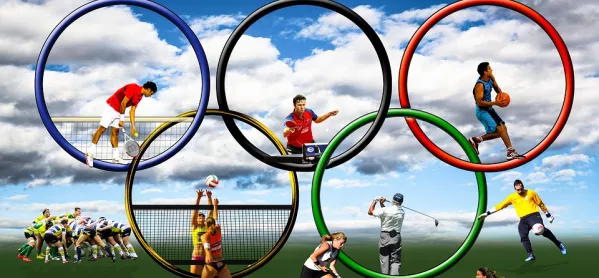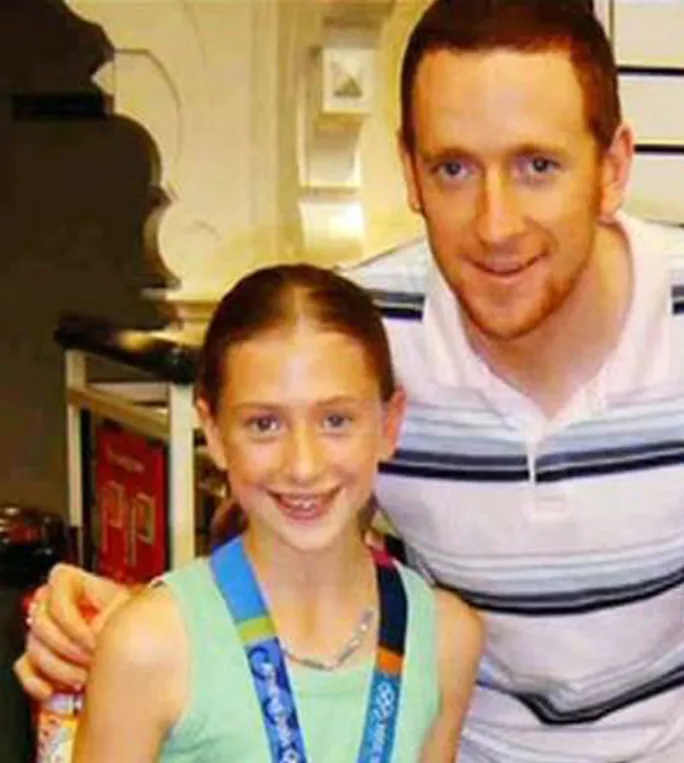Everyone will have their favourite moment of the Olympics. Mine was a photograph (below) that appeared after Laura Trott’s great double-gold medal performance in the velodrome, showing her as a 12-year-old wearing the gold medal that Bradley Wiggins had just won in the men’s individual pursuit race in Athens in 2004.
Inspired by the man who has since won more Olympic medals than any other Briton, as well as the Tour de France, Laura has now herself won four gold medals.
Like many of the competitors in the Rio games, she spoke of the enormous commitment and hard work over four years that brought her success, as well as the immense support that she had had from the big team of people in UK Cycling, famous for their strategy of marginal gains, but with fitness trainers, nutritionists and many others playing an equally important role.
Inspiration, commitment, hard work and team support have been part of the recipe for the remarkable success of the GB team, but funding has been key to making it all happen, both in terms of the amount invested and the way it has been allocated.
Enter an Olympic hero who didn’t get any medals at Rio, but certainly deserves one: Baroness Campbell, who has had many roles in UK sport for a generation. It was Sue Campbell who persuaded David Cameron in 2012 that Britain should become the first Olympic host country to increase its funding for elite athletes for the following games, with the amount going up from £264 million to £274 million.
She also persuaded the government that the timeline for funding decisions should be extended from four to eight years, so prospects for the 2020 Tokyo Olympics have already been receiving funding for the past four years - a welcome piece of long-term planning and a recognition that it takes longer than four years to nurture winners.
‘Big commitment’
The UK government has shown a big commitment to elite sport, adding 25 per cent funding - £68 million - to the 75 per cent provided by the Lottery.
Teachers who have taught our Olympic medal winners have spoken in TES about what these young people were like at school. These and many other teachers will have given support well beyond the PE classroom to the budding stars. Training for top-level sport alongside school work requires a degree of commitment way beyond what most people have given at any point during their lives. Amy Tinkler, for example, who gets her GCSE results on Thursday to follow her Olympic bronze last week, has been training in gymnastics for 30 hours a week.
The challenge now is to use the Olympic legacy to bring about wider participation in sport and to improve the fitness of the nation - and schools have a big part to play in this.
One of Michael Gove’s worst decisions in 2010 was to abolish school sports partnerships (article free for subscribers) and specialist sports colleges as part of his demolition of the whole specialist school movement. Funding ended in 2011. Secondary sports colleges had worked in effective partnerships with local primary schools in ways that hugely benefited sport at a local level. The Youth Sports Trust, which oversaw the school sports partnerships scheme, was led by none other than Sue Campbell, who was greatly respected in sports colleges for her YST work.
This scheme has been replaced by the PE and sport premium for primary schools, which schools can use to add to sports activities, hire coaches, train staff, provide holiday clubs or run competitions. It provides substantial grants to primary schools, with a typical 200-pupil school receiving £9,000 per year.
What has been lost through Mr Gove’s decision are the strong sporting links between primaries and secondaries and the funding for sport in secondary schools: an age group when young people need to be encouraged to take part in sport as much as their younger brothers and sisters at primary school.
Having shown how successful this country can be when we put substantial funding into a sport policy at elite level and plan long-term, we must hope that the legacy of the latest Olympic success is that sports funding for schools is re-examined and the same commitment is shown to the funding of secondary, primary and special schools as to our best athletes.
John Dunford is chair of Whole Education, a former secondary head, general secretary of the Association of School and College Leaders and national pupil premium champion. He tweets as @johndunford





